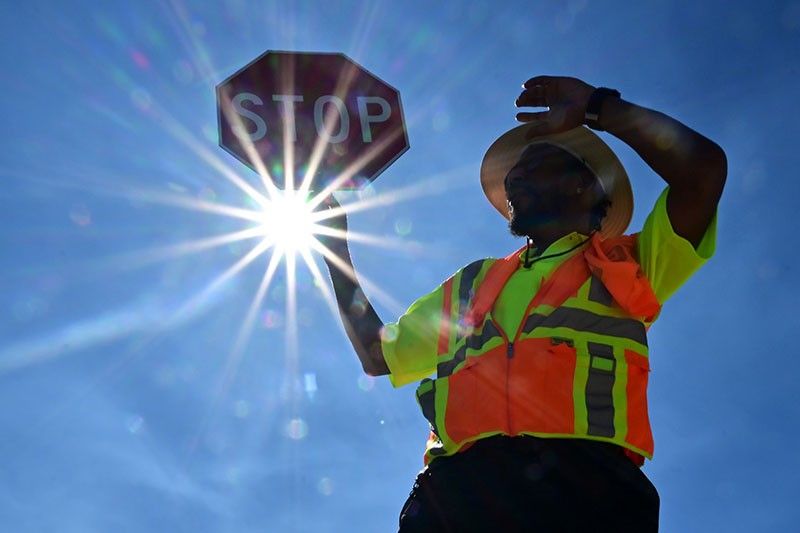Europe, Asia and America Cook in Record Heatwaves

People across Europe, Asia and America are baking in record-breaking heatwaves, with temperatures soaring well above normal levels.
In Europe, the heatwave has been particularly severe, with temperatures in some countries reaching as high as 45 degrees Celsius (113 degrees Fahrenheit). In Greece, the Acropolis has been closed to tourists as a precaution, and in Italy, heat alerts have been issued for 15 cities.
 Local residents look on at a burning forest fire, near Puntagorda on the Canary Island of La Palma, July 15, 2023
Local residents look on at a burning forest fire, near Puntagorda on the Canary Island of La Palma, July 15, 2023The heatwave has also had a significant impact on agriculture, with crops wilting and farmers struggling to harvest. In France, for example, the heatwave has caused an estimated €1 billion in damage to crops.
In Asia, the heatwave has also been a major concern. India’s temperatures have reached as high as 48 degrees Celsius (118 degrees Fahrenheit), and in Pakistan, the heatwave has killed at least 65 people.
In the United States, the heatwave has been less severe, but still hot enough to cause problems. In California, for example, the heatwave has led to power outages and wildfires.
The heatwaves are a stark reminder of the dangers of climate change. As the planet warms, heatwaves are becoming more frequent and more severe. This is having a devastating impact on people and ecosystems around the world.
Health Risks
The heatwaves are posing a serious health risk to people across the region. The elderly, the young and those with underlying health conditions are particularly vulnerable.
The high temperatures can cause heatstroke, dehydration and heat exhaustion. These conditions can be fatal if not treated promptly.
Impact on Agriculture
The heatwaves are also having a significant impact on agriculture. Crops are wilting and farmers are struggling to harvest. This is likely to lead to food shortages and price increases.
Impact on the Environment
The heatwaves are also having a negative impact on the environment. Forest fires are breaking out, and air quality is declining.

What Can Be Done?
There is no easy solution to the problem of heatwaves. However, there are some things that can done to mitigate the risks.
- Governments can invest in early warning systems so that people can prepared for heatwaves.
- People can encouraged to stay cool and hydrated during heatwaves.
- Governments can also invest in renewable energy sources to reduce greenhouse gas emissions and slow the pace of climate change.
The heatwaves are a wake-up call. We need to take action now to reduce our emissions and mitigate the risks of climate change.

- Art
- Causes
- Best Offers
- Crafts
- Dance
- Drinks
- Film
- Fitness
- Food
- Games
- Festival
- Gardening
- Health
- Home
- Literature
- Music
- Networking
- Other
- Party
- Religion
- Shopping
- Sports
- Theater
- Wellness



